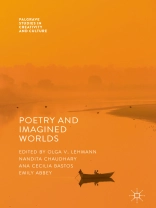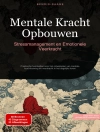This book explores the deep, imaginative, and creative power of poetry as part of the human experience. How poetry provides insight into human psychology is a question at the beginning of its theoretical development, and is a constant challenge for cultural psychologists and the humanities alike. Poetry functions, in all ages and cultures, as a rite that merges the beauty, truth and the unbearable conditions of existence. Both the general and the particular can be found in its expression. Collectively the authors aim to evoke a holistic understanding of what poetry conveys about decision making and the human search for meaning. This ground-breaking collection will be indispensable to scholars of clinical and theoretical psychology, philosophy, anthropology, literature, aesthetics and sociology.
Inhaltsverzeichnis
Section I. Poetic Resources as Tools to Make Meaning.- Chapter 1. A liaison of poetry and tattoos: The multivoicedness in Edgar Allan Poe’s poem “The Raven”.- Chapter 2. Beauty of the Back.- Chapter 3. Poetry In and For Society: Poetic Messages, Creativity, and Social Change.- Chapter 4. The Poetics Within Performance Art: The Developmental Nature Of Artistic Creative Processes.- Chapter 5. Commentary: Poesis and Imagination.- Section II. The Poetic Roots of Creativity and Imagination.- Chapter 6. Living Against and Persistence of Being: Poetic Sharing of Being Sensitive Within Antagonistic Worlds.- Chapter 7. Rimbauding Worlds: Creation of Deranging Senses.- Chapter 8. Living in Verse: Sites of the Poetic Imagination.- Chapter 9. Apprehending beauty: Ordinary people’s experiences of the ‘poetic instant’ in India.- Chapter 10. “The Tune Without The Words”: Dickinson`s Verses In a Jazz Ensemble: A Case Study on The Poetics of Music and The Musicality of Poetry.- Chapter 11. Commentary: On poetics, art and life.- Section III. The poetics of daily life.- Chapter 12. Imagined Sea.- Chapter 13. Living with ‚Encantados‘: Dances of poet and scientist within the self.- Chapter 14. Poetic gestures of life.- Chapter 15. Dialogue as poetic imagination in the Way of Tea.- Chapter 16. Commentary: The Poetics of Daily Life: The Invisible Becomes Visible.- Chapter 17. Conclusive Remarks: Writing Toward the Core—Poetically Framing a Science of Cultural Psychology
Über den Autor
Olga V. Lehmann researches at the Norwegian University of Science and Technology, Norway.
Nandita Chaudhary is Associate Professor at the University of Delhi, India.
Ana Cecilia Bastos is Professor at the Catholic University of Salvador and Federal University of Bahia, Brazil.
Emily Abbey is a Professor in the Department of Psychology at Ramapo College of New Jersey, USA.












